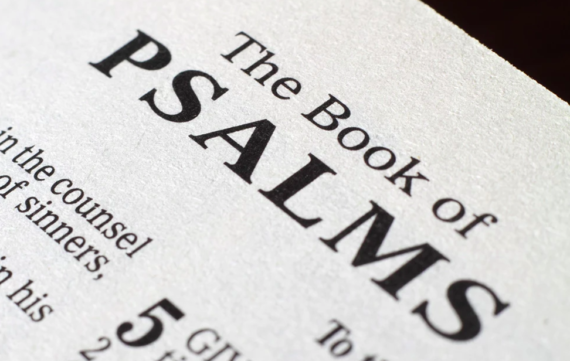Churches that use a psalm to open their services, as a call to worship, most often use one between 91 and 100. But this psalm would also be useful in such a setting. It opens with a call, even a command, to worship.
Everyone is called to worship (1). The temple musicians are especially called to worship (2). The priests who blow the trumpets are to call everyone to worship (3).
The most likely setting of this psalm was for use at Tabernacles, the feast that commemorated the wilderness wanderings. Both the mention of trumpets and the later content of the psalm indicate this.






The psalm consists of two parts. First, we have the call to worship (1-5). Then there is a longer section giving the reasons why they ought to worship the Lord (6-16).
Deliverance and blessing
They should worship the Lord for he delivered and blessed them.
“I relieved your shoulder of the burden; your hands were freed from the basket. 7 In distress you called, and I delivered you; I answered you in the secret place of thunder; I tested you at the waters of Meribah. 8 Hear, O my people, while I admonish you! O Israel, if you would but listen to me! 9 There shall be no strange god among you; you shall not bow down to a foreign god. 10 I am the Lord your God, who brought you up out of the land of Egypt. Open your mouth wide, and I will fill it (6-10).
The Exodus remains the foundational event of Israel’s history, and one of the primary claims God makes on them. It is the basis of the 10 commandments (Ex 20:1) and the basis of this call to worship.
It is interesting that the deliverance, as it is seen here, involved not only deliverance from the thankless labour of Egypt, but deliverance from slavery to self at Meribah (7).
We too have been, or are in the process of being, delivered. How we view our deliverance is a commentary on our spiritual state. They had both visible, external slave masters, and invisible, internal ones. We have mainly the latter. They were slaves for life to the external slave masters. We were slaves for eternity to our internal slave masters. They were delivered at the cost of a paschal lamb. So were we (1 Cor 5:7).
Gracious forgiveness
They should worship the Lord for he has been with them despite their stubbornness.
“But my people did not listen to my voice; Israel would not submit to me. 12 So I gave them over to their stubborn hearts, to follow their own counsels. (11-12).
God’s amazing grace is amazing not only because of what he has done, but because of his continuing to do it while being rejected and complained of by those he is in the process of saving (Rom 5:7-8).
His reaction to this rejection has been to give people over to their own counsels (12), and the results that ensue. Rarely, I think, does God directly punish us in this life for our sins. Normally, the sins bring their own punishment with them. But even in allowing us to suffer consequences, God is being kind. The consequences serve as warnings, as a means of redirecting us for our own good.
Future hope
They should worship the Lord for then they will fully receive his blessing.
Oh, that my people would listen to me, that Israel would walk in my ways! 14 I would soon subdue their enemies and turn my hand against their foes. 15 Those who hate the Lord would cringe toward him, and their fate would last forever. 16 But he would feed you with the finest of the wheat, and with honey from the rock I would satisfy you” (13-16).
This thought must not be put first or made primary, but within proper limitations it is not wrong. If it is made primary it places man rather than God at the centre, with God responding to man rather than man to God.
Verse 10 begins to introduce this thought, which is carried on in 13-16. It is not so much that God is unwilling to bless the ungrateful as that the ungrateful are just incapable of receiving blessing.
The chief end of man is “to glorify God and enjoy him forever.” Let’s get back to our chief purpose. Let us praise God in our daily lives as well as in our corporate worship.

